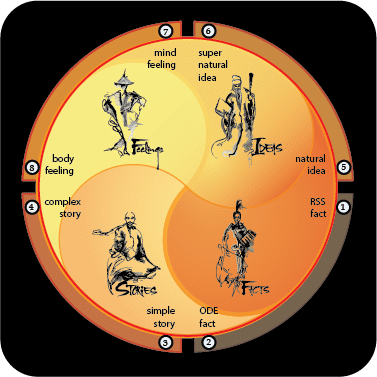From a psychological perspective, what does the shadow symbolize?
Good Morning, Wayne. To begin with, thank you for asking me such a deep question. In fact, there is so much that could be said that I’m not sure where to start. My first thought? One of my favorite Buddhist sayings comes to mind; “That which you resist, persists.” The more you try to not be something you dislike, the more you feel compelled to become it.
As seen from a psychological perspective then, the shadow refers to the “you,” you wish to deny, disown, and never let see the light of day. We all have these alternate personas, the parts of our personalities we feel sure would make the world see us as monsters or unlovable. For example, take that modern bullshit diagnosis referred to as “Imposter Syndrome.” In most cases, rather than help us, this DX puts this fear into our heads. Then the more we try not to think about it, the more we secretly fear we’re pretending to be someone we’re not.
Ironically this unwanted belief then undermines our confidence, making us act like that incompetent person we fear we are. A better perspective? Embrace our flaws and talents and learn to love our humanness.
Of course, like most people, I find doing this is easier said than done.
As for the shadow as a symbol, for most folks, Jung’s writings come to mind. Here I have to admit, while Jung’s ideas have inspired a deep interest in Eastern philosophical writings, trying to make sense of his professional writings has mostly left me flat (and at times, shouting, WTF, stop talking in tongues!). At the same time, reading his preface to his friend, Richard Wilhelm’s, translation of I Ching is my favorite of all Jung’s writings. Clear. Personally honest. Revealing. Human. And most of all, Jung honoring his shadow side, offering his truth, naked, unvarnished, and free from any obfuscating “professional” symbols.
Am I saying using psychological symbols is wrong? In a way, I am. Psychology is best served in a form which, as Ernst Rutherford said, “can be taught to the bar maid.” After all, psychology’s main goal is to teach us to better know ourselves. And to do this, we so need this kind of plain-spoken truth.
Now in the service of trying to follow my own admittedly lofty advice, I offer the following excerpt from one of my earlier books, a bit of little-known lore about the origin of that well-known symbol.
